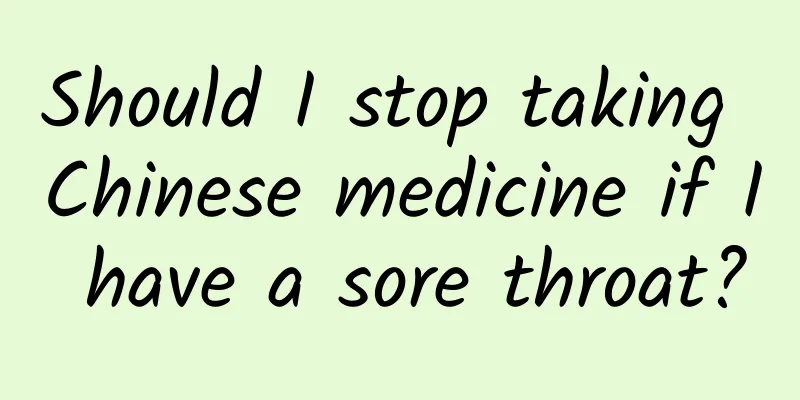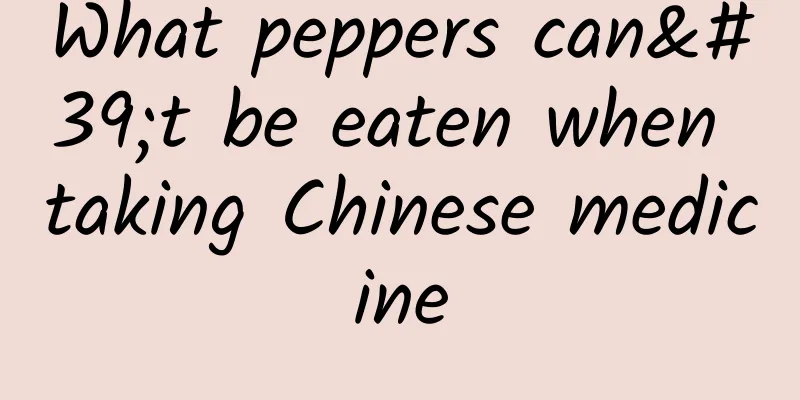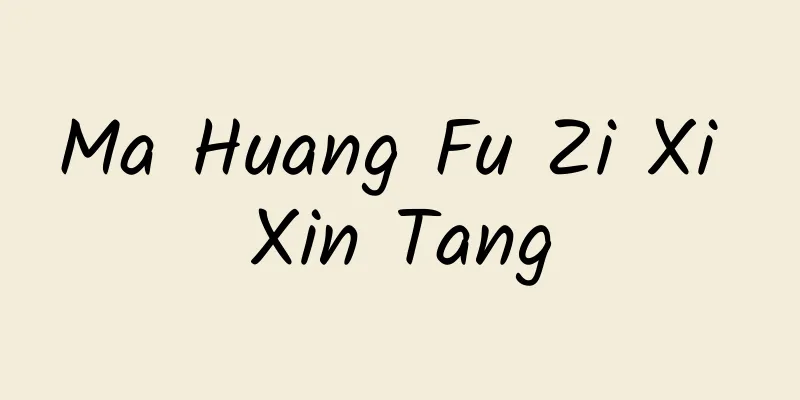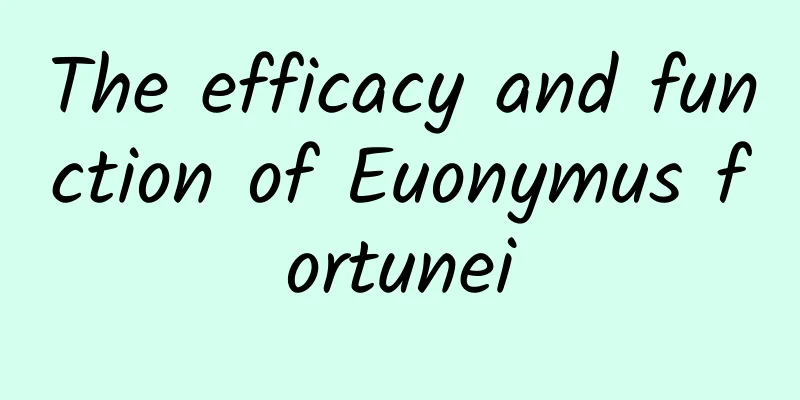Should I stop taking Chinese medicine if I have a sore throat?

|
Western medicine only treats the symptoms but not the root cause, while Chinese medicine treats both the symptoms and the root cause. When the human body shows symptoms of chronic diseases, we can use a combination of Chinese and Western methods to carry out conditioning. It is inevitable to take Chinese medicine when carrying out TCM treatment, so what are the taboos of taking Chinese medicine? How to boil Chinese medicine? What are the main uses of the residue? Let's learn about it together. Should I stop taking Chinese medicine if I have a sore throat? If your throat hurts after taking Chinese medicine, it is recommended that you stop taking it for the time being, communicate with a doctor immediately, and receive treatment under the doctor's guidance. This situation may be caused by getting angry easily. It is recommended to take some Huanglian Shangqing Pills for treatment. During this period, you must drink more water, eat more vegetables and fruits, and avoid eating spicy foods to avoid aggravating the condition. Taboos of taking Chinese medicine 1. Avoid eating raw or cold food When taking Chinese medicine, it is best not to eat cold foods. Cold food will cause great harm to the stomach and intestines. If you take cold food while taking Chinese herbal medicine, it will not only affect the absorption of the medicine, but also cause some gastrointestinal diseases in severe cases. Especially those who already have a bad stomach should pay more attention to their diet and avoid raw and cold food. 2. Avoid eating radish Experts remind that whether you are drinking Chinese medicine or taking medicine, you should try to avoid eating radishes during the medication period, otherwise the efficacy of the medicine may be greatly affected. Many people often take a lot of medicines but their condition does not improve, which is also closely related to poor diet. Especially when taking Chinese medicine, you should not eat radish, except for some medicines for promoting qi and resolving phlegm. Often, you cannot eat radish during this period because radish can aid digestion and break up gas, especially when taking nourishing and health-preserving Chinese medicinal materials such as ginseng and scutellaria. Scientific research has confirmed that radish will weaken the nourishing effect of ginseng and other fruits, and therefore has no therapeutic and nourishing effect. Therefore, people who often take Chinese medicine should be careful and stay away from radish. 3. Avoid spicy food Irritating foods will reduce the main efficacy of medicines, and some spicy foods will react with medicinal materials and harm human health. Most of the irritating foods consume a lot of energy and start fire, so we should try to reduce these foods when taking traditional Chinese medicine for clearing away heat and fire, replenishing yin and cooling blood. Some peppers, beef, garlic, etc. are irritating foods and will affect the main efficacy of the medicine. 4. Avoid greasy feeling It is also necessary to avoid greasy foods during the medication period. Eating too much high-calorie food is not conducive to digestion and absorption, and it will also have the disadvantage of increasing moisture in the body. If you eat high-calorie foods while taking Chinese medicine, it will affect the digestion and absorption of the medicine by the stomach and intestines, thus losing its important efficacy and function. Some people with poor spleen and stomach and indigestion should usually eat less greasy food. 5. Avoid strong tea Generally, do not drink strong tea when taking Chinese herbal medicine, because tea contains tannic acid. Strong tea contains a lot of tannic acid. When taken with Chinese herbal medicine at the same time, it will affect the body's absorption of the ingredients in the Chinese herbal medicine and reduce its efficacy. Especially when taking "egg-hide gelatin cake" and "white fungus", avoid drinking them together with tea. Taking them at the same time will cause the tannins and flavonoids in the tea to precipitate, affecting the body's absorption. If you have the habit of drinking tea, you can drink a little green tea leaves, and it is best to drink it 2 to 3 hours after taking the medicine. How to boil Chinese medicine 1. Selection of utensils The best frying utensils are porcelain and stone pots, followed by stainless steel pots, enamel pots and heat-resistant glass containers, because these utensils have stable physical properties and are not likely to produce chemical reactions with the ingredients of the boiled Chinese medicine. Do not use frying pans, copper hot pots and aluminum pots, because these elements can react chemically with some ingredients in traditional Chinese medicine, which is not conducive to the treatment of diseases. 2. Preparatory Processing The first step: "Look" Before decocting Chinese medicinal materials, you should first check the quality of the Chinese medicinal materials. If you find any problems such as insects or mold, you should deal with them in time; the second is to check whether there are Chinese medicinal materials that do not require special treatment. If there are any, they should be placed separately and treated in a special way. The second step: "Soak" the Chinese medicine preparations brought back from the pharmacy with appropriate amount of water and soak for 20 to 30 minutes. For light Chinese medicines and when the temperature is high, the soaking time should be shorter, while for heavy Chinese medicines and when the temperature is low, the soaking time should be longer. The purpose is to make the Chinese medicines moist and loose, which is conducive to the decoction of the ingredients. 3. Frying 1. Decoction with tap water: Generally, pollution-free drinking water can be used. It is not advisable to use repeatedly boiled water or overnight water to decoct Chinese medicinal materials. 2. Water addition rate: Experience has shown that the water addition rate is 3 to 5 cm above the surface of the medicine; the theoretical calculation is to add 10 ml of water for every 1 g of Chinese medicine, 70% of the total water flow is used for the first decoction, and the remaining 30% is used for the second decoction. 3. Fire for frying: Generally, you should follow the principle of "slow fire first and then slow fire". In other words, use low fire before boiling to boil the water quickly, and use slow fire after boiling to maintain a slight boil to reduce the volatilization of water. 4. Decoction time: The decoction time is measured from the time the medicine boils. Generally, the first decoction of antipyretic medicine takes 10 to 15 minutes, and the second decoction takes 10 minutes; the first decoction of tonic medicine takes 30 to 40 minutes, and the second decoction takes 25 to 30 minutes. The reason for controlling the decoction time is that long-term high-temperature decoction will damage plant cells and increase the insoluble and ineffective components in the medicine. And there is also the risk of burning the medicine if it is decocted for a long time. 5. Frequency of decoction: Generally, 2 to 3 decoctions are enough to extract 80% to 90% of the ingredients in the Chinese medicinal materials. After decocting, filter out the decoction immediately, mix each decoction and take it in batches. The main uses of the residue Hot fumigation: add water to the residue and simmer for 3-5 minutes. After leaving it for a while, add appropriate amount of pure grain wine and vinegar, and use the heat flow to fumigate the painful area. Hot compress: Add 2 taels of white wine and 2 taels of vinegar to the frying residue, mix well and wrap with gauze. Pure grain wine can promote blood circulation and dredge meridians, while vinegar has the effect of applying to acupoints and can promote digestion and absorption of medicines. First put a layer of pure cotton towel, and then use the residue wrapped in gauze to apply hot compress to the painful area of the face to prevent burns. Soak your feet in hot water: boil the residue for another 3 to 5 minutes. You can add a small handful of peppercorns and wormwood leaves and boil them together. After the water cools down, add pure grain wine, vinegar and table salt. Traditional Chinese medicine believes that the kidney controls the waist and feet, and salty taste enters the kidney, which can lead medicine into the kidney. Adding salt to the residue and soaking your feet in hot water will have a better effect. The above method should be performed for 10 to 20 minutes at a time. Be careful to avoid scalding the skin, especially the water temperature should be appropriate for foot soaking. The foot soaking time should be appropriate according to your own condition. Pregnant women and the elderly are not suitable for long-term hot water foot soaking. It should be noted that there are certain taboos in applying residues externally. External application is suitable for symptoms of yin deficiency and internal heat (such as joints being afraid of wind and cold, cold hands and feet in winter, cold air on the back, loose stools, and difficulty urinating). It is not recommended for real heat (such as local swelling, heat and pain, joint pain with fever, and redness of the skin); it cannot be used by those with water accumulation in the joints; it is not suitable for skin allergies and affected areas. The residue can also be used for planting flowers The residue left after decocting Chinese medicinal materials is a very good fertilizer for growing flowers. Because most Chinese medicinal materials are flowers, stems, leaves, flowers, fruits, skins of plants, bodies, organs, shells of animals, and some minerals, they are rich in organic and inorganic substances. Nitrogen, phosphorus and potassium fertilizers needed for plant growth are all found in traditional Chinese medicine. Using medium residue as fertilizer has many benefits for flower cultivation and can improve the permeability of the soil layer. Summary: Taking Chinese medicine can regulate our body from the source, but there are many taboos when taking Chinese medicine. It is best not to eat some raw, fishy, greasy, and spicy foods when taking Chinese medicine, otherwise it will affect the efficacy of the Chinese medicine and sometimes even harm your health. The residue in it also has very good effects. It can be used externally or soaked in hot water to have a practical effect on health preservation. |
<<: Urine is brown after taking Chinese medicine
>>: How long does it take to get pregnant after taking Chinese medicine to regulate the body
Recommend
Benefits of Chinese medicine deer antler glue
Deer antler glue is a glue block made from the an...
The efficacy and function of winged chrysanthemum
Winged Caraway, also known as mountain lettuce, b...
If you eat too much salt, there are several signs that your body is choking, not just wanting to drink water!
Mr. Yang, 47 years old, developed weakness in the...
Evodia rutaecarpa efficacy and function
In life, everyone cannot avoid some diseases, esp...
How to take angelica to regulate menstruation
Angelica sinensis is a very commonly used Chinese...
Can Panax notoginseng be taken for a long time?
Panax notoginseng is a medicine that is very help...
"Sleep for 12 hours after drinking it." This bottle of drink is regarded as a "sleeping magic tool" by netizens. Is it really effective?
"Anyone who has trouble sleeping should drin...
What strange reactions will occur in the body before death? Can there really be a last moment of life?
Expert of this article: Zhang Yinming, PhD in For...
Allergies are prevalent in autumn, what should we do?
《Cotton Swab Medical Science Popularization》 Wei ...
Be careful of such chicken feet, as eating them has a great impact on human health!
Do you have any doubts when buying instant chicke...
The efficacy and function of moving the steamer
Bandaozeng is a kind of medicinal material. If we...
6 foods that the brain loves the most, essential for “brain supplements”!
Work, study, socializing, sports... no matter wha...
Dating and marriage: mathematics can help you find the best partner
Lovers will eventually marry. When we choose blin...
Side effects of smilax china
We also call Polygonum multiflorum as Chess vine ...
The efficacy and function of red hemp
There are so many medicinal herbs in the world, a...









